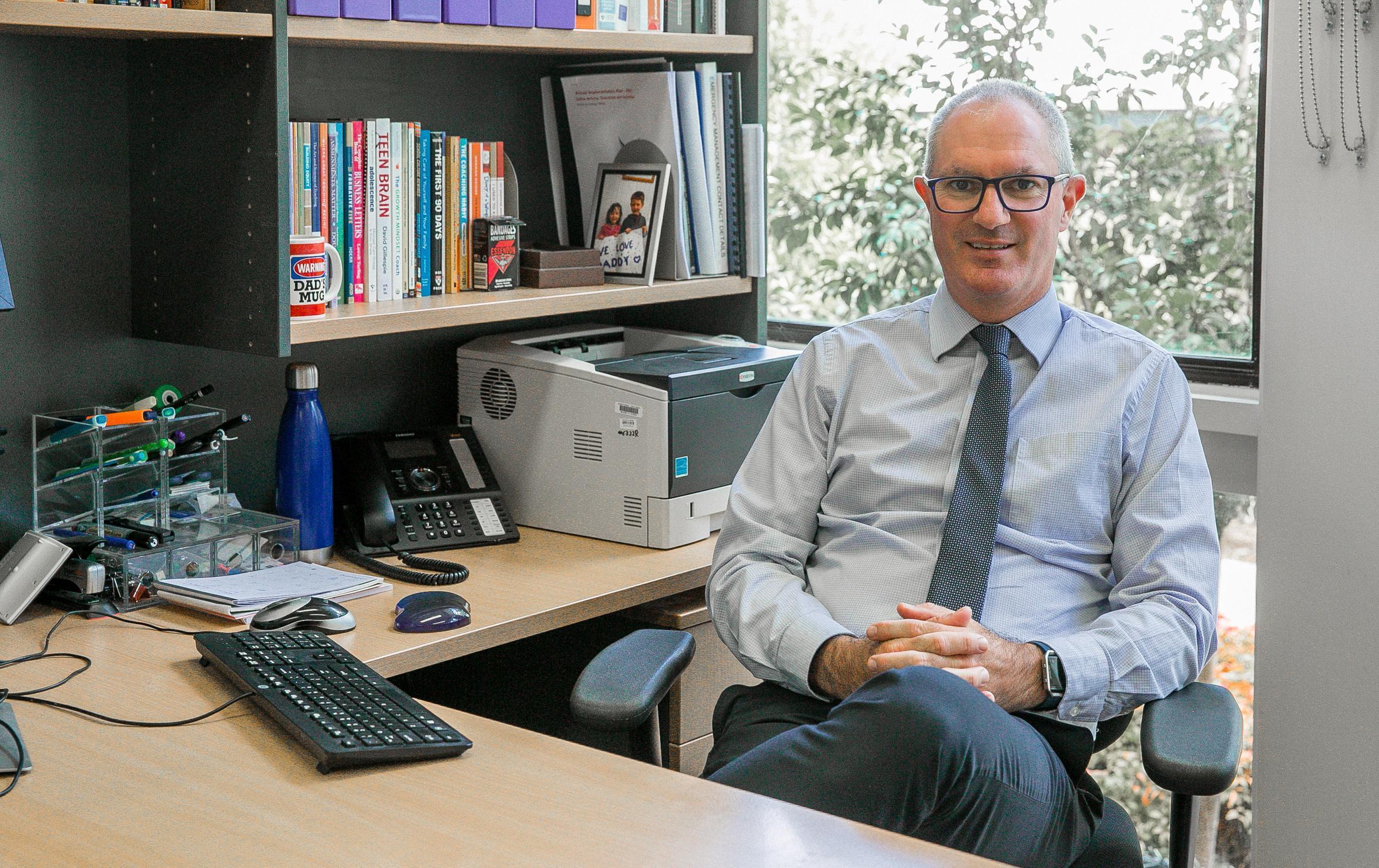Principal Team Editorial

Way back, in “normal times” before we’d ever experienced something life altering, such as the COVID pandemic, members of the school leadership team started the journey to investigate the concept of developmental assessment and whether this approach might be able to further improve our learning outcomes.
Confident that this approach was evidence-based and achievable in the long-term, we pressed ahead with its implementation, requiring an extraordinary commitment from our teachers during a time of great upheaval and challenging circumstances, with teachers often working in isolation at home (2020-21).
In many schools, this would have been a deal-breaker. Some said that we were crazy to even try pressing ahead down this path where many others had failed. And maybe we were crazy, but we all shared a strong moral purpose and vision for doing better; our staff and leaders believed that focussing on growth and not achievement was a fair and just ambition that deserved the extra commitment.
Fast forwarding to 2021, our Year 7 students that year were the first cohort to be assessed using Developmental Rubrics, the first students to be assessed against Victorian Curriculum levels, the first students not to receive traditional grades. And whilst we were convinced that the evidence and research was on our side when we implemented this change, we knew that its success (or not) may not be evident for years to come. We had to stay the course.
With COVID impacts, and staffing and leadership changes, it might be reasonable to expect learning outcomes not to grow as rapidly as we might have hoped, or maybe even go backwards. It would also be fair to consider that some teachers may not have shared the vision as passionately as others, and as a result they took the opportunity to get a fresh start elsewhere.
So considering all of that, you can imagine that I was quite nervous when NAPLAN 2023 results were released to schools this week (individual reports will be sent home next week) because this year’s Year 9 cohort were that Year 7 group from 2021 who are the first to have followed the Developmental Assessment approach all the way through years 7 to 9. Would the results justify our hypothesis from way back in 2019, when we decided to undertake our own education revolution? The flesh on my fingers was white in colour, they were crossed that tight!
Before I tell you whether we popped corks of champagne (metaphorically!) or crashed and burned, let me tell you that in 2023, the way NAPLAN results are reported has undergone a dramatic transformation. Formerly, NAPLAN results were reported in Achievement Bands i.e., Band 7, Band 8 etc, a system that was confusing to parents. Now results are communicated according to proficiencies e.g. exceeding, strong, developing, needs further support. Further, because the system has changed, it makes if difficult to compare our results this year to results in previous years. It also means that we are not able to measure student growth from Grade 5-7 or Year 7-9.
So how can we judge our performance and measure our success (or not)? Well, I'm glad you asked!
Whilst we aren't able to compare the percentage of students in particular proficiency levels vs the state, we can compare to network (Knox) and similar schools. So therefore, I compared our 2022 Top 2 Bands performance to network and similar schools and measured the difference. I have done the same for 2023 proficiency levels. Thus, I compared the performance of our top group from 2022 with our top group in 2023, measuring them in a comparison against the performance of students in network and similar schools.
In short we have significantly increased the positive gap between us and our network and similar schools. There are 31 similar schools, from metro and regional including some high performing schools.
Our students smashed it! Far exceeding our network and similar schools in all measures and, in some instances, by solid margins! Improvement was not only evident in the achievement of our top students, but was evident across the board. A credit in particular to the English and Maths leadership teams and APs, who drive this work on a daily basis, and other leaders and teachers, whose commitment has been transformational!
The switch from a focus on achievement to a focus on student growth will also allow us, for the first time ever, to recognise students who have achieved above the expected level of growth in each subject at our Mid-Year and Annual Awards.
Will still be recognising outstanding achievement, but this means that you don’t have to be a high achiever to be an award winner, you just need to ensure that you are learning as much as you can, whatever level you start at!
On a final note, we started a revolution. We have few regrets!
Kevin Murphy
Principal

